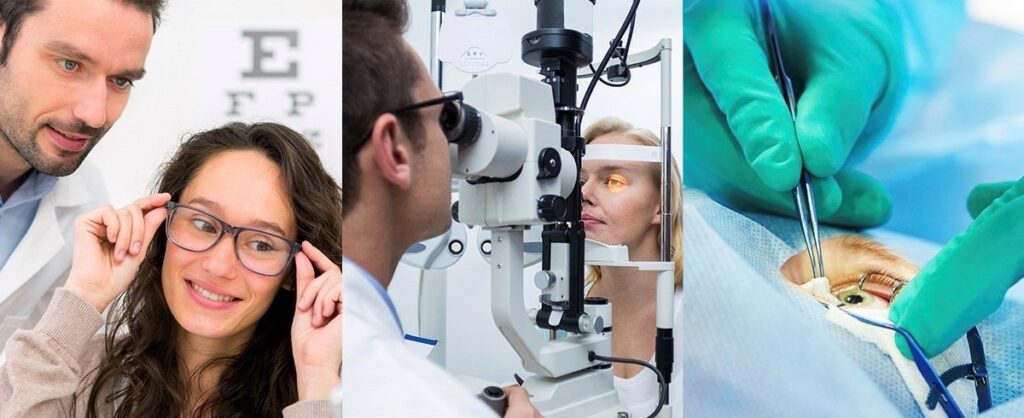
Ophthalmologist
An ophthalmologist is a medical doctor who specializes in eye and vision care. Ophthalmologists differ from optometrists and opticians in their levels of training and in what they can diagnose and treat. As a medical doctor who has completed college and at least eight years of additional medical training, an ophthalmologist is licensed to practice medicine and surgery. An ophthalmologist diagnoses and treats all eye diseases, performs eye surgery, and prescribes eyeglasses and contact lenses to correct vision problems. Many ophthalmologists are also involved in scientific research on the causes and cures for eye diseases and vision disorders.
While ophthalmologists are trained to care for all eye problems and conditions, some M.D.s specialize in a specific area of medical or surgical eye care. This person is called a subspecialist. They usually complete one or two years of additional, more in-depth training called a fellowship in one of the main subspecialty areas such as glaucoma, retina, cornea, pediatrics, neurology and plastic surgery, as well as others. This added training and knowledge prepares an ophthalmologist to handle more complex or specific conditions in certain areas of the eye or in certain groups of patients.
Optometrist
Optometrists are healthcare professionals who provide primary vision care ranging from sight testing and correction to the diagnosis, treatment, and management of vision changes. An optometrist is not a medical doctor. An optometrist receives a doctor of optometry (OD) degree after completing four years of optometry school, preceded by three years or more years of college. They are licensed to practice optometry, which primarily involves performing eye exams and vision tests, prescribing and dispensing corrective lenses, detecting certain eye abnormalities, and prescribing medications for certain eye diseases.
Optician
Opticians are technicians trained to design, verify and fit eyeglass lenses and frames, contact lenses, and other devices to correct eyesight. They use prescriptions supplied by ophthalmologists or optometrists, but do not test vision or write prescriptions for visual correction. Opticians are not permitted to diagnose or treat eye diseases.
Protect Your Vision
Seeing the right eye care professional at the right time is crucial. We all depend on our vision in more ways that we may realize. Without healthy vision, our ability to work, play, drive or even recognize a face can be drastically affected. Many factors can affect our eyesight, including other health problems such as high blood pressure or diabetes. Having a family member with eye disease can make you more prone to having that condition as well. Sight-stealing eye disease can appear at any time and very often they are unnoticeable at first and are difficult to detect. That’s why it is so important to see an ophthalmologist for a complete medical eye exam every year to two years.

